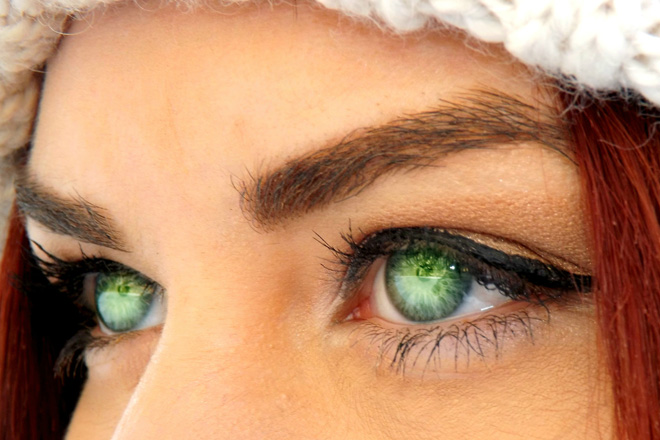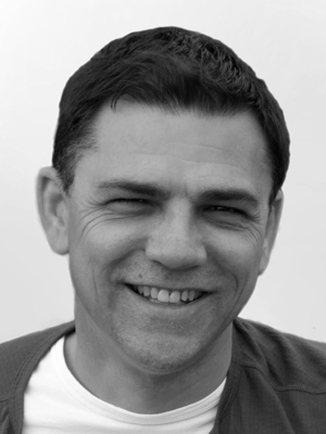|
A little while ago, a seemingly innocent Tweet led me to a conversation with Frank Ninivaggi. Frank is a child psychiatrist at Yale, and he had something very interesting to say about envy,
No one in USA gives credence to primacy of envy - Frank Ninivaggi
You might get that emotions like anger, sadness, joy, and fear are primal emotions, but envy as a primal emotion? After all envy isn't something people experience very often, rather it's something we try to avoid feeling. When we do admit to feeling envious it's often done as a joke, or in a non-serious way. So, rather than use humans to see just how primary envy is, let's take a look at how Capuchin monkeys handle envy. The following is an excerpt from a TED video talk by Frans de Waal about an experiment looking at unequal pay. 2 events are of particular interest,
Frank Ninivaggi's somewhat complex description fits rather well with what we can see happening in this Capuchin monkey, Envy is the unconscious awareness of discrepancy and dissonance between self and "other" even though "other" is more a fantasy than a real person. The nuts and bolts of this "envy sense" is that something ideal is available but that it disappears and is replaced by distress, typically unbearable...
source Frank Ninivaggi in Psychology Today (quote edited for clarity)
The Capuchin monkey loses this connection with 'other' when the researcher first switches attention to the other monkey. She tries to 'delete this need', by turning her back and not looking. When she is again given cucumber, we see her briefly look at her companion - she is aware of this discrepancy between herself having cucumber, while her companion has a grape. Her distress rises, she throws the cucumber at the researcher, and rattles on the cage. If the cage were not there we can presume she would try to 'delete' the researcher by physically attacking them. Talking about the unconscious
Frank's writing sits within a pyschoanalytical framework. It is based upon the principle that a large component of how we think, feel, and behave is not available to conscious examination. We can only experience the unconscious indirectly.
The way psychoanalysts make sense of the unconscious is by talking about it as though this part were conscious. They imagine what this part would think and feel, if it were conscious. So while the unconscious may be explained as driven by a set of conscious thoughts and feelings, it will often emerge as something else. Another way to think of 'unconscious envy' is as a basic instinct or motive, which when it is enacted may emerge as resentment, injustice, or anger, which is directed at the envied object or person. Some examples of envy in the real world
You buy a new car, only to come back to find someone has run a key down the side of the bodywork leaving a deep scratch.
The person who did that has experienced something very much like the Capuchin monkey from the video. Their own car is a cucumber, and they see somebody else has a grape. They attempt to 'delete' their feeling of dissatisfaction by spoiling your car. UK Uncut 'spoil' targeted businesses by setting up protests, such as running mock hospitals in UK banks. The protest is about how one section of our community is getting grapes, while everyone else is getting cucumbers. This is an example of a more constructive way of dealing with envy. The aim being to get the grapes shared more fairly rather than spoiling them altogether. The critical voice and envy
Rather than attack with our fists, or a key, we tend to attack using language. One of the ways we do this is by using our 'critical voice' within a "Yes, but!" construction.
You might also call this gossip. It often goes something like this, "X is a lovely person, but the trouble with them is..." We take an ideal quality, which in Frank's terminology we 'unconsciously envy', and attempt to 'delete' it, by cancelling out the ideal with a 'but'. Usually after a good gossip we feel better. We might even say that we feel 'justified' in what we have said, as our sense of injustice gets replaced with satisfaction. The critical voice is very prevalent in celebrity reporting. It almost seems as if the purpose of building stars up, is so that they can be torn down again. A recent example is Johnny Depp, where you can see a twin process of idolisation in this Metro article, and tearing down in this article from The Sun. What happens to envy when it turns inwards?
Here we are faced with a dilemma. We have two opposing images - one is how we believe we are now and one is some ideal we would like to be. Usually this ideal is derived from people around us - it is not our own.
When envy becomes internalised we often turn our critical voice on the less than ideal image we have of ourselves. We try to 'delete' this image, as we continually cajole ourselves for failing in the hope that somehow this will motivate us to achieve the idealised state. In truth we are doomed to fail, because in part the ideal image we have is simply that - it's an "ideal" not a "real deal" Our ideal is simply unobtainable. The other part is that an ideal is solely an image of having the desired state. It doesn't include all the costs of achieving it. The Capuchin monkey, when it reacted in the experiment, had an image of the pleasure of eating a grape. She wasn't considering the rock she would have to pass to the researcher to get it. Similarly, we may want to be popular, however our ideal does not include the costs of being popular. Such as not saying "no," the many hours thinking about and considering other people's feelings, nor the social anxiety that often goes with popularity. We can also turn our internalised envy against our ideal image. This doesn't solve the problem of envy either. By 'deleting' our ideal, we also 'delete' emotions like desire, drive, and wanting. Instead we 'drift', which can also lead to dissatisfaction, and you might find yourself saying things like, "I've never really amounted to much," or "I've never really known what I wanted," or "I've always taken the easiest option." How can envy be socially useful?
So if we can't either externalise nor internalise envy without it being destructive what use does it serve?
Capuchins are social animals, and are particularly noted for their complex social repertoire. The Capuchin in the unequal pay experiment had a strong emotional reaction. Clearly, in the wild this behaviour's purpose is to promote sharing of food among the group. Which leads me to consider how unconscious envy can be useful, or in the parlance, 'adaptive'. Envy starts with comparing ourselves to an ideal "other". When they are far apart we feel dissatisfaction, or even distress. This feeling of dissatisfaction rather than leading us to 'delete' the ideal state, can also act as a driver to try and reach this state. What I am really talking about here, is inspiration. Inspiration is a common theme in many stories about success. No article about a musician is seemingly complete without some comment about who or what inspired them. Inspiration involves two apparently counter-intuitive strands,
and,
For instance, I am inspired by the philosopher, Jacques Derrida. However, I don't want to be him. I don't want to teach philosophy students, nor do I want to write essays on "shopping lists", or "prefaces." Rather, I want to take elements of his unique way of looking at the world, and use them to develop my own unique way of understanding. So why look at envy in this way?
My aim in writing this article isn't to say this is how we should understand something like envy. Rather, what I am saying is,
"Hey, there is this way of understanding envy, which I find enlightening and different." It allows me new ways of looking at things like perfectionism, anger, motivation, and the critical voice. It opens the door to new possibilities. I hope it also opens some new doors for you too.
main picture by AdinaVoicu
5 Comments
10/6/2016 06:55:13 pm
Reply
Yvonne FitzPatrick Grimes
13/6/2016 12:47:57 pm
To me there is something about accepting our human emotions,not necessarily liking or wanting them but being aware and making room for them and being conscious of how we engage and use them. Finally self-compassion adds an extra element to acceptance..Yvonne FitzPatrick. BA (Hons.) Dip. MBACP
Reply
Mark Redwood
13/6/2016 01:34:39 pm
Hi Yvonne, I agree. Often emotions get labelled as being positive or negative. Emotions are neither of these things. They enable us to make a full and vibrant connection with the world around us. And for something so vital we often spend our time trying hard not to have them!
Mark Redwood
13/6/2016 01:42:34 pm
Hi Frank, I am just starting to grasp this idea of envy and empathy. I guess as you outline it starts with noticing difference...I notice you have a quality, that I do not. It suggests that empathy is a choice, rather than a given - which is rather intriguing.
Reply
Yvonne FitzPatrick Grimes
13/6/2016 12:50:13 pm
To me there is something about accepting our human emotions,not necessarily liking or wanting them but being aware and making room for them and being conscious of how we engage and use them. Finally self-compassion adds an extra element to acceptance..Yvonne FitzPatrick. BA (Hons.) Dip. MBAC
Reply
Leave a Reply. |
Categories
All
Archives
January 2021
|
BioI'm Mark, a Humanistic Counsellor. |
Home - Testimonials - Articles - Links - Contact - Book Appointment - Counselling Students - Privacy Policy - Terms
Mark Redwood, BA (Hons) Counselling, MBACP
© Mark Redwood 2015, 2016.2017 | Main portrait by Doug Freegard © 2015


 RSS Feed
RSS Feed